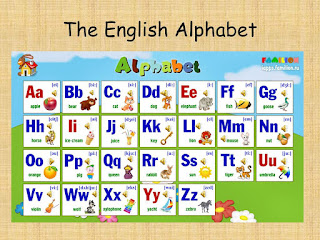Karen Wigby, a Life devoted to EFL Teaching. An Interview (2)
 |
| Ms. Karen Wigby de Nieto |
I
have retired from administrative responsibilities, but not from teaching,
directing thesis or working on projects.
TEFL is still a project I would like to work on, particularly the online
program and a curriculum reform. The
TEFL program needs a good evaluation and curriculum review and I would love to
do that.
As
I mentioned above, there was an urgent need for a TEFL program in 2002 because
there was a huge demand for English teachers and so many were only English
speakers without any understanding of how students learn English. I had left high school teaching/coordinating
for UCG because I wanted to train teachers and Peter Harrington with his
rapidly expanding COPEI needed trained teachers so it was a perfect match.
Today,
the TEFL program is changing since professional standards are rising. Before, schools accepted the TEFL certificate
as a minimum requirement to teach, but now the new laws require a
licenciatura. Today the TEFL program mainly
serves as professional development for people who already have a licenciatura
or whose licenciatura is in another area. Aspiring English teachers should now
work for licenciaturas from the beginning.
Once
the English teacher university curriculum is defined, it is quite possible that
in order to meet the demand for qualified English teachers, the Min. of
Education will accept the TEFL certificate as bilingual certification for teachers
with B2 English and licenciaturas in other areas. Most states in the USA accept
as bilingual certification a program similar to the TEFL program. The
Ministerio was open to discussing that possibility a couple of years ago. If the TEFL certificate is accepted in the
future by the Ministry of Education as bilingual teaching certification for
people with licenciaturas in other areas, then the TEFL program should be
directed to people who already have degrees instead of people who might have
just graduated from high school. Though
the laws are changing minimum requirements, the TEFL program still has an
important role to fulfill.
4. What is your perspective of the development of the EFL field in
Ecuador? What actions are positive? Which ones should be revised?
I think this question has already been
answered above.
Since one of the greatest needs now is for
teachers with B2 or higher proficiency level, the most important revision would
be on a policy level – to accept the TEFL certificate as bilingual
certification for people with licenciaturas in other areas.
5. What advice would you give to all those aspiring English teachers out
there?
Over my years of teaching, I’ve come to understand that the most
important thing I can do in my school is be the principle learner. It took me a long time to understand my
role as a principle learner in the classroom, but once I did every day became a
more exciting, richer experience. So my
advice would be to not think of yourself as a teacher, think of yourself as the
main learner in the classroom.



Comments